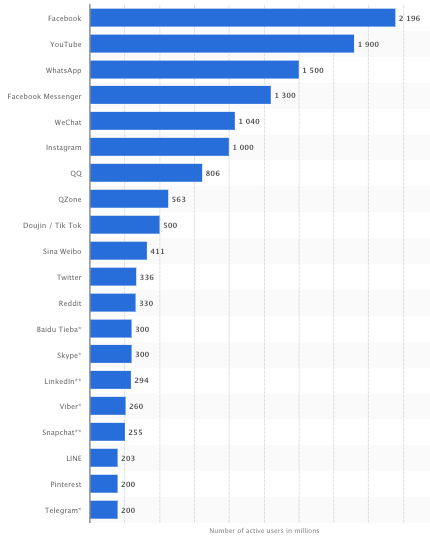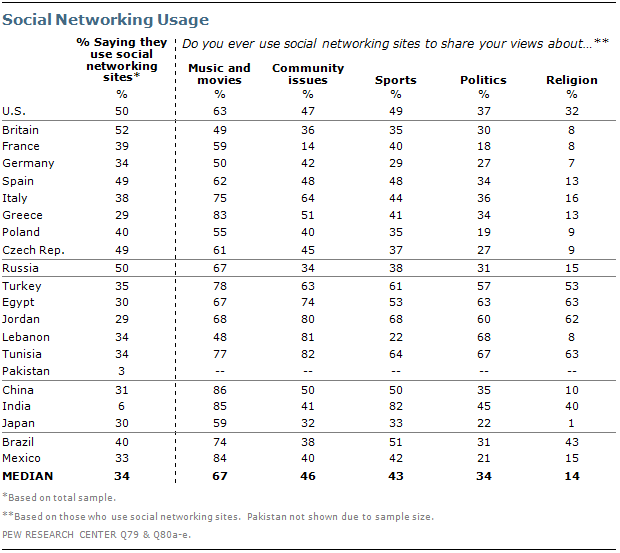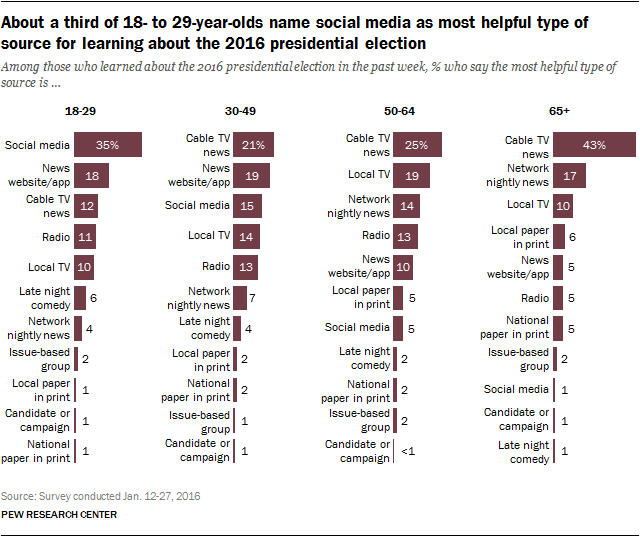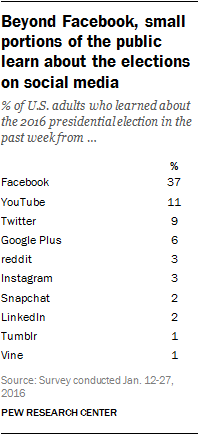Social Media Impact over Elections around the World
We see practically everywhere, a consistent rise in the use of Social Media. Regardless of cultural traits, government positions and internet penetration, this can be said to be a global trend. In addition, large companies dealing with social media are present in most nations.
See this chart from Statista.

In addition the interests when using a social network usually go through entertainment, local affairs, sports, religion and of course—politics.
Since the United States, which has advanced a lot in the political interest via Social Media, according to Pew Research Center, with 50% of social networking use in the Internet public—many nations are in the range of 30% to 50%.
Of this percentage, we can see in the chart from Pew, a significant percentage of interest in politics by several countries.

Zooming in the case of the United States, as we said, where the use of social media by politicians is well consolidated, we see the youngest public has had as the main source of information for recent election for president, social networks.
In the 30-49 range falls to a significant 3rd place that should increase in the future, falling a little more in the following ranges.
See the chart, also from Pew Research:

To finish the numbers and try to decipher an analysis, see what social networks the people of the United States used in the last presidential race. Check the Pew chart:

Well, I believe that with all of this potential, several companies already specialize in supporting politicians around the world. With technological bases from Big Data Analytics, AI and Cloud Computing, these consultants need to understand this new world and how to explore the tools an online campaign in a professional manner.
For example, understand the psychological profile of each electoral segment and build an approach that the candidate can address by reducing resistance and reinforcing its positive characteristics. The psychological profile of the voter can be measured in social networks with analytical tools and Big Data. AI can collaborate on simulations, discover communication insights, and gain a deeper understanding of the public.
If this can lead to a certain manipulation of communication, it must be said that social media allow a huge democratization of voters, especially in countries with greater Internet penetration, and after all, that manipulation has always occurred in other channels. Voters may have a better chance of choosing different candidates via social media.
In this case, it is important to note the factor of reinforcement bias that information has in social media. That is, information accepted by a group is widely diffused among its peers, either positively or negatively in relation to some political platform.
In any case, Big Data Analytics enables segmentation and study of trends to train politicians around their speech. The link with social media supporting this communication is essential, in both directions.
As all the candidates use these tools, a certain democratization of information occurs, reaching with equal weights the voters of diverse currents.
Cloud Computing today also allows a new phase of elections. Today, some of the more pioneering countries are starting to conduct online polls, but in any case in many nations, a large migration of voter data, votes, and voting intentions is allowed through a variety of channels, migrating to the cloud many relevant and sensitive information.
This allows an efficiency in the flow of data of electoral knowledge (to the public administration or market companies), of the opinion and of intention of votes without pair.
Through Artificial Intelligence, candidates have an unprecedented and very effective alternative to dealing with rumors, fake news, memes, viralized information and even conspiracies. These movements today populate the networks extensively and taking care of it is important. AI allows to anticipate movements to act assertively and accurately in the combat to these phenomena.
Now, a more segmented, almost personal approach is allowed via these new tools. One can act in an individualized way and some critics say that even in an unethical way. I believe that the own segmented positioning with tools will be subject to surveillance in the future, bringing a positive attitude in general.
As it is debated from time to time, bringing the truth or bringing only the convenient can become an element of judgment by the voters. Big Data, Cloud and AI work in 2 hands and soon everywhere, statistics and analytics of the type of information disclosed will serve to measure the performance of candidates.
Something negative in some campaigns is the use of bots for massive attacks on opponents. This is a reflection of this world of social media. If AI can help provide the attacks, it may also criticize platforms that may make use of it.
I believe that AI and Big Data will help the voter to better discover which candidate matches his wishes and to highlight this interest among the politicians in question.
Anyway, AI and Big Data can help to form a good or bad opinion of voters. It will be interesting to follow in each country how these trends will shape.